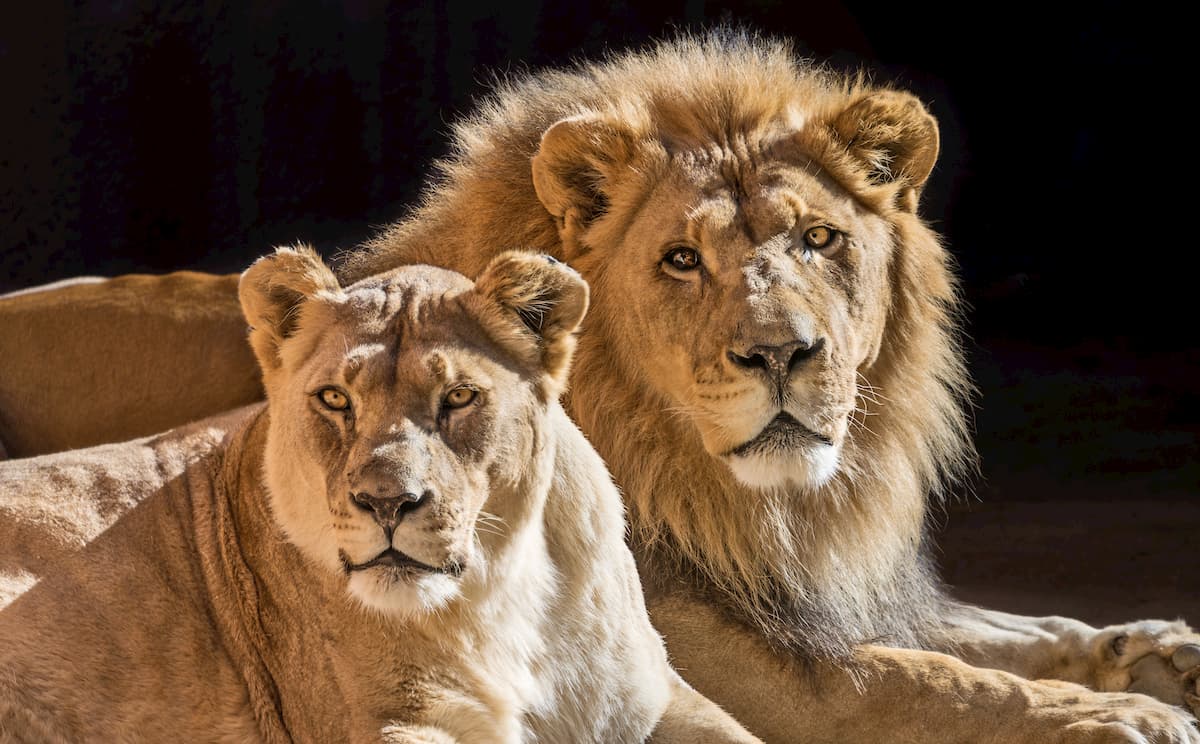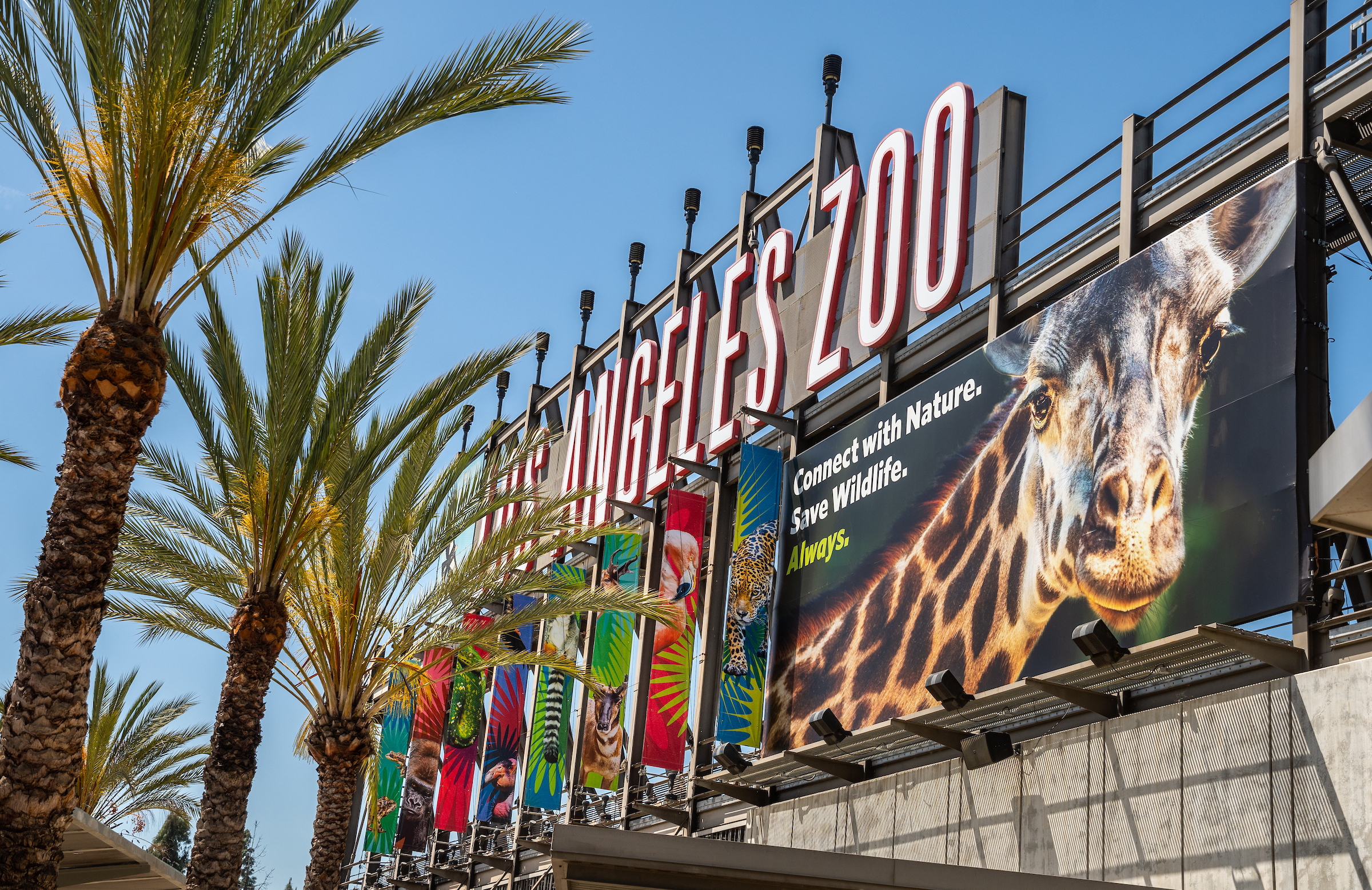
21-Year-Old Partners Hubert and Kalisa Lived a Long Life As Loyal Companions
The Los Angeles Zoo is sad to announce the death of our African lion pair, Hubert and Kalisa. Animal care and health staff made the difficult decision to humanely euthanize the 21-year-old companions on Thursday, July 30 due to their declining health and age-related illnesses that diminished their quality of life. The beloved pair resided at the L.A. Zoo for the past six years.
“Hubert and Kalisa are an iconic part of the L.A. Zoo experience, and our staff and guests have been touched by their loyal companionship,” said Denise Verret, CEO & Zoo Director of the L.A. Zoo. “Their longevity is truly a testament to the level of expert care our veterinary and animal care teams provide for our elderly animals. These lions will remain a positive part of our history, and they will be greatly missed.”
Hubert was born Feb. 7, 1999 at the Lincoln Park Zoo. Over the course of Hubert’s life, he fathered 10 cubs and met his long-time companion, Kalisa, a female African lion born Dec. 26, 1998, at the Woodland Park Zoo. In 2014, Hubert and Kalisa moved from the Woodland Park Zoo to the L.A. Zoo. While the pair have been long-time companions, they never produced cubs together.
“This is a very hard loss for our Zoo community,” said Alisa Behar, curator of mammals at the L.A. Zoo. “In the early mornings, staff would routinely hear Hubert’s waking roars, and I will personally miss hearing them on my walks around the grounds. You cannot think of Hubert without thinking of his companion, Kalisa; they’ve been an inseparable couple for years. I have to commend our animal care and veterinary staff for the great care they’ve given this pair, a couple who lived longer than most lions do in human care and the wild.”
The average life expectancy for African lions in the wild is mid-teens and about 17 years in Zoos. The African lion is native to the savannas, arid woodlands, and semi-desert regions from south of the Sahara Desert to South Africa. With an estimated declining wild population of 23,000-39,000 lions, the IUCN Red List categorizes the African lion as vulnerable due to human-wildlife conflict, prey depletion, the illegal trade of lion body parts for traditional medicine, trophy hunting, and disease.
About the Los Angeles Zoo
Accredited by the Association of Zoos and Aquariums (AZA), the landmark Los Angeles Zoo and Botanical Gardens, drawing more than 1.8 million visitors each year, is home to a diverse collection of 1,400 animals representing 270 different species, 58 of which are endangered. Its lush grounds on 133 acres feature various plant species from around the world and California including many rare and endangered species. The Zoo is located in Griffith Park at the junction of the Ventura (134) and Golden State (5) freeways. Admission is $22 for adults and $17 for children ages 2 to 12. The Zoo is currently closed to the public until further notice. For information, call (323) 644-4200 or visit the L.A. Zoo website at lazoo.org.

